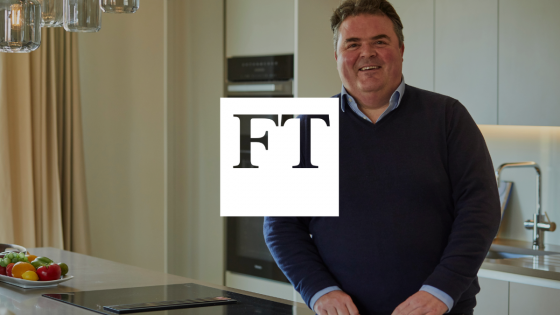Most homeowners live in their property for about ten years before selling. Homeowners without a mortgage stay longer, typically for 24 years. However, this doesn’t stop them from hanging on reports on whether house prices are up or down, even though in the majority of cases these movements are notional returns that won’t be realised for many years.
But how should a homeowner make informed, long-term decisions about their property when house prices are reported monthly and annually?
Our Market Insights report is a 30-year outlook and it gives food for thought for anyone who owns or aspires to own a home, and also for policy planners and housebuilders.
The report states that “a fundamental force in demand for housing, often overlooked, is changing demographics”. The emerging trend is that “the UK population is not just ageing but becoming elderly”. According to the report, a 31 per cent increase, or close to a million more households, will be over the age of 75 by 2028 compared to 2018, and 11 per cent, or about 750,000, more households will be aged 55 to 74.
If postwar baby boomers are going to vacate their family homes — for which demand always outstrips supply — they will have substantial purchasing power, and this could lead to greater demand for lateral conversions in attractive towns and cities, single-level eco-retreats and barn conversions in beautiful locations with good amenities.
Once the baby boomer generation passes, they will leave not just property but freed-up capital that will likely bypass Gen X (born between the mid-1960s and 1980) and millennials (born between 1981 and the mid-1990s) — who will be older and likely already housed — and go to their Gen Z (born between the late 1990s and early 2000s) and Alpha grandchildren (born after 2010).
They are likely to be more concerned about the environment and benefiting from technological changes, which means living in cities will be a choice rather than a necessity. While some of them will still probably want to occupy the trendy parts of east London, this may make an environmentally conscious country lifestyle in less fashionable counties such as Kent, Somerset and West Yorkshire more appealing to younger generations.
It’s fascinating to speculate on how artificial intelligence (AI) could affect the property market. The AI-enabled Generation Alpha will be supporting an unprecedented large number of older people who probably won’t want to live in gated communities as their forebears did. A recent YouGov survey found that 90 per cent of respondents would prefer to be supported at home in older age than in a residential care home.
Gen Alpha may well provide care robots to older people, with the robots taking care of a range of chores, including monitoring health, leading to less downsizing and the slower recycling of homes. As demand grows for prime property, we may see a return to multigenerational and communal living.
Population decline, migration, government building targets, climate change, working practices, inheritance and other taxation policies, rental market reforms, repurposing of urban/office buildings — there are too many variables to know where we will be in 2054, but one thing is certain: homeownership is embedded in the British psyche and a critical engine of our economy.
That’s why it feels safe to say, we will still be discussing house prices at dinner parties in 2054.
Read the full article here.







